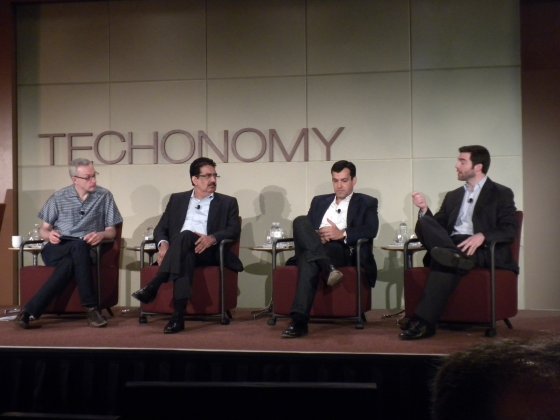(I’m reporting all this week at the Techonomy conference in Lake Tahoe, California. For more coverage, check out the Techonomy blog.)
On the second day of the Techonomy conference in Lake Tahoe, California, David Kirkpatrick moderated a discussion on “Managing the Unmanageable: The New Empowered Workforce.” On the panel were:
- Vineet Nayar of HCL Technologies
- Rajeev Singh of Molares, Alcatel-Lucent
- Jeff Weiner of LinkedIn Corporation
Here’s a few of the items that came up in the discussion:
- “Employees first, customers second is the only way you can beat your competitors,” said Nayar. He rationalized it this way. His outsourcing company creates differentiated value for its customers. That value exists
between the employee and the customer. The employee creates the value. The business of the manager is to enthuse the employee to create the value for the customer. That’s why you have to focus on employees first. - Transparency is necessary because employees have access to information that they’ve never had before. If employees behave badly, companies believe they can’t trust their staff so they go in the opposite direction. They start shutting off information and it makes the situation even worse, said LinkedIn’s Weiner.
- Harvard Business School reports that the average graduate will have 13 different jobs over their life. That’s about one job every three years, said Singh.
- Brazil, China, and India are LinkedIn’s fastest growing markets right now, said Weiner.
- Switching jobs is going to be easier than it has been in the past. Most of it has to do with the ability to easily show your identity, experience, skills, and your ability to network. Building your network used to be expensive. It’s not anymore, said Weiner.
- Half of the population is under 25. They have communities of interest, they are collaborative. They don’t operate under a hierarchy. They don’t understand or accept hierarchy. The organization structure needs to approach this 50 percent of the organization at their level. You must adapt for this population coming in, said Nayar.
- How do managers change themselves for this environment? If a manager thinks giving up control will make their growth go faster, then they will give up control, Nayar said.
Read the rest of the article on the Techonomy site.




